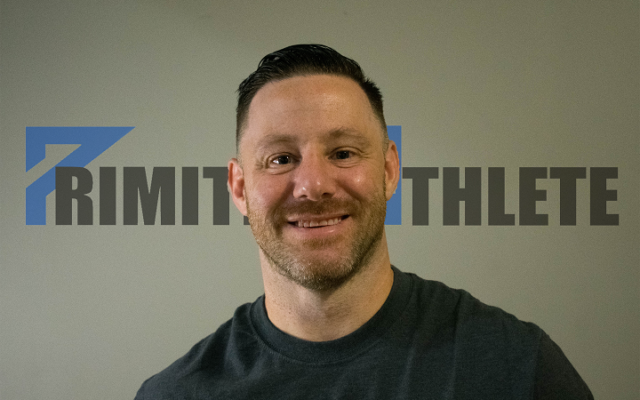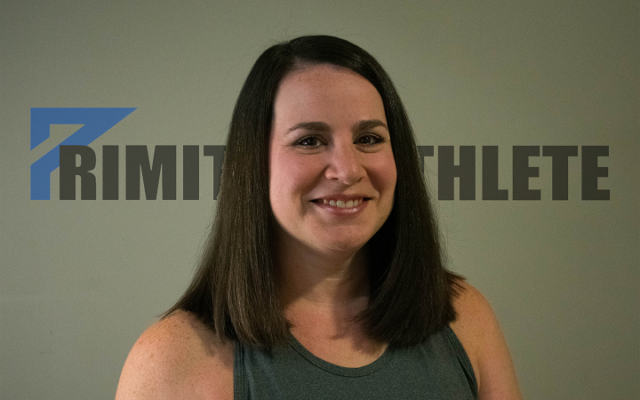Golsen’s Team Up as Coaches
Operating as Primitive Athlete, Sarah and Alan Golsen offer sports advice on college, Jewish Day schools, giving feedback, home schooling and more.
After 37 years with the Atlanta Journal-Constitution and now with the AJT, , Jaffe’s focus is lifestyle, art, dining, fashion, and community events with emphasis on Jewish movers and shakers.
Husband and wife, Alan and Sarah Golsen, operate Primitive Athlete, where they work with both youth and adults, in-person or virtually. They offer advice to parents on how to get the best out of sports while keeping a nurturing and positive relationship…and maybe even lead to a college program.
Sarah Golsen, who grew up in Baton Rouge, La., where she was a competitive dancer, has a bachelor’s and doctorate in psychology and certifications as both a mental strength coach and health coach. Originally from Marietta, Alan played competitive soccer and wrestled, has a degree in human environmental science, and holds certifications as an elite trainer, nutritionist, online coach, and is working on his strength and conditioning certification. Daughter, Mia, is a competitive gymnast. Son, Michael, played competitive baseball where Alan coached.
Sarah Golsen said, “As our children grew up, and our love of helping young athletes grew, we decided that with our unique skill sets, we could offer services to kids that are typically only found once athletes reach the collegiate level.”
The below talking points were relayed to the AJT:
At what age should parents start to engage kids in sports?
SG: Every kid and every family have unique situations; some kids gravitate to a sport by three, while others show no interest. Some enjoy team sports like soccer, basketball, and baseball where others are pulled towards individual sports like golf, tennis, and swimming. If a child does not have an opinion, multiple sports should be tried starting around age five.
How does a parent balance giving praise vs. judging?
SG: Positive feedback and encouragement should never be overbearing. Corrections should be left to coaches unless your child has asked for parent’s feedback. In the car, after the game, isn’t the time to give feedback. This is the time for encouragement and praise, win or lose. A couple of hours after the competition, it would be appropriate to engage if asked.

How about parents on the fields screaming at refs?
AG: As parents, we have already experienced winning and losing, and we want kids to experience more success than failure. Remember that our competitive nature needs to be kept in check and not set the wrong example to kids who need to learn vital sportsmanship.
Private vs. public schools?
SG: Most schools, either public or private, have both team and individual sports. Some may not have a traditional football program but have substituted flag football. Most have baseball, soccer, golf, and tennis. Most of this is due to the size of the student population. If the school doesn’t offer a sport you want, check club teams. Jewish schools have less choices, but that doesn’t mean it’s better or worse. Some of the bigger Jewish schools are able to field multiple varsity and JV sports teams.
Best route to college sports?
AG: Female athletes have more opportunities for scholarships due to Title IX, which prohibits sex discrimination in any federally funded educational institution. It requires an equal number of women’s and men’s sports. This has opened up more opportunities for women to receive scholarships in sports like softball, volleyball, soccer, gymnastics, golf, and rowing. Not saying it’s easier for a woman to get a scholarship but meaning there are more opportunities now. Both need talent and drive. We help them mentally and physically to achieve goals.
Home vs. traditional school?
AG & SG: Most home-schooled athletes tend to be individual athletes like gymnasts, swimmers, figure skaters, dancers, track and field athletes, and golfers. The athlete needs to be heavily involved in the decision to home school. The best time to try home schooling is when the sports and school schedules interfere with their ability to complete daily activities such as sleep, homework, and family time. Homeschooling can offer flexibility in an athlete’s daily schedule providing them more time to spend with family, and other interests missing with their grueling schedule.
Controlling diet?
AG: Everyone is different and what works for one kid may not work for another. I focus on “performance nutrition,” meaning what type of sport-specific nutrition an athlete needs pre- and post-training, and also pre- and post-competition. This encourages maintaining and building strength and recovering from strenuous activity. The way our bodies process different foods for energy can be advantageous or disadvantageous depending on what and when we eat. I work exclusively with foods the athlete enjoys. Most people fail at diets where they can’t eat what they like because it’s not sustainable.
Handling performance stress?
SG: We talk about trust in training, setting small achievable goals, and remembering why they are playing the chosen sport. Most importantly, I remind them to believe in themselves.
Tips on how to have a healthy competitive child
• It is OK to talk about your feelings and don’t keep stress bottled up
• Success doesn’t come without hard work and support from parents
• Try to understand the things you can’t control
• Nutrition or diet does not mean eating things you don’t like
• Take things one step at a time
• Remember why you started
• Trust in your training
• Set small achievable goals
• Ask for help if needed
• Believe in yourself




comments